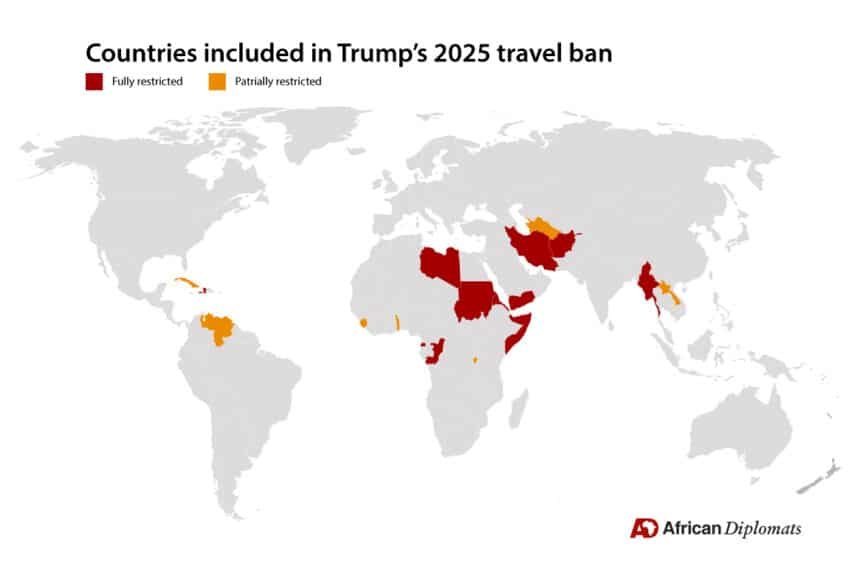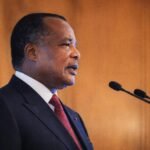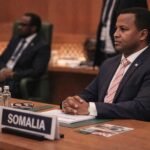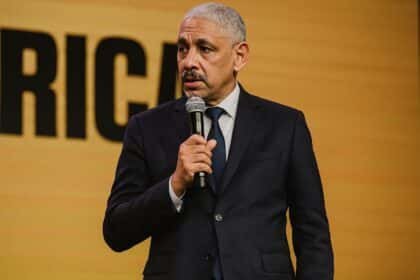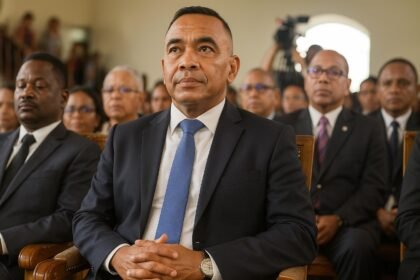Background and Legal Rationale
At 22:15 EDT on 4 June 2025 President Donald Trump signed a proclamation entitled Restricting the Entry of Foreign Nationals to Protect the United States from Foreign Terrorists and Other National Security and Public-Safety Threats (White House, 5 June 2025). The document invokes sections 212(f) and 215(a) of the Immigration and Nationality Act, empowering the executive to suspend entry whenever the national interest is deemed at risk. In televised remarks Mr Trump argued that “countries unable or unwilling to share vital security data cannot be given the benefit of doubt” (Associated Press, 5 June 2025).
The administration cites the 2018 Trump v. Hawaii ruling, which upheld an earlier iteration, as jurisprudential cover. Senior White House counsel contend that the revised list is “religiously neutral” and calibrated to individual risk assessments, distancing it from the so-called “Muslim Ban” of 2017 (Reuters, 5 June 2025).
Countries Affected and Specific Measures
The proclamation fully bars entry from Afghanistan, Myanmar, Chad, the Republic of the Congo, Equatorial Guinea, Eritrea, Haiti, Iran, Libya, Somalia, Sudan and Yemen. Partial restrictions—primarily suspensions of immigrant visas and diversity-lottery entries—apply to Burundi, Cuba, Laos, Sierra Leone, Togo, Turkmenistan and Venezuela (The Independent, 5 June 2025). Exemptions exist for lawful permanent residents, dual nationals travelling on an unaffected passport, and individuals whose admission serves a “compelling national interest”.
Department of Homeland Security officials emphasise that the list emerged from a 180-day inter-agency review of identity-management practices, lost-passport rates and visa overstay data (Washington Post, 5 June 2025). However, civil-society monitors complain that the metrics remain opaque and that several listed states cooperate closely with US counter-terrorism programmes.
Domestic Political Landscape
With the 2026 mid-term cycle already in sight, the White House frames the ban as proof of vigilance after the 18 May terror attack on a Denver commuter train, allegedly perpetrated by an Egyptian national residing unlawfully in the United States—Egypt itself is not on the list (NPR, 5 June 2025). Republican leaders swiftly applauded the order, arguing that prior liberalisation under President Biden “gutted American sovereignty”.
Conversely, Democratic lawmakers labelled the measure “performative security” and pledged legislative push-back. The American Civil Liberties Union announced preparations for urgent injunctive relief in the Ninth Circuit, contending that the proclamation violates the establishment clause by disproportionately affecting Muslim-majority states (Guardian live briefing, 5 June 2025).
International and Multilateral Reactions
Several of the targeted governments summoned US envoys for explanations within hours of the signing. Iran’s Foreign Ministry denounced the move as “diplomatic hostility dressed as domestic prudence”, while Nigeria—which avoided inclusion after intensive lobbying—expressed relief but called the policy “counter-productive to shared counter-terrorism efforts” (Al Jazeera, 5 June 2025).
At the United Nations, the Secretary-General’s spokesperson reiterated concerns that blanket travel prohibitions risk undermining refugee-resettlement norms and the Global Compact for Safe, Orderly and Regular Migration. European Union officials signalled that data-sharing agreements with Washington may require renegotiation to ensure that EU citizens holding dual nationality are not inadvertently barred.
Potential Legal, Economic and Humanitarian Implications
Legal scholars note that the proclamation contains a discretionary waiver process, yet previous audits showed approval rates below eight per cent, suggesting that humanitarian exceptions may be largely nominal (American Immigration Council, 5 June 2025). Airlines operating high-volume routes to Africa and the Near East anticipate abrupt schedule adjustments and revenue losses. The US tourism sector, already labouring under a strong dollar and stringent visa wait times, fears compounding setbacks.
Economists at the Peterson Institute estimate a potential contraction of 0.05 percentage points in GDP growth for 2025–26 if the ban remains intact, driven by reduced high-skilled immigration and lower international student enrolment. Tech-sector lobbyists warn that the simultaneous proclamation restricting student visas at certain universities could redirect talent to Canada, Australia and the UK (Reuters, 5 June 2025).
The 2025 travel proclamation marks the most sweeping immigration restriction since the early pandemic closures, but its longevity is uncertain. Judicial review, diplomatic bargaining and domestic electoral dynamics will shape whether the policy endures or is diluted. For now, the order underscores an enduring tension between sovereignty-centred security doctrines and the liberal norms of mobility on which much of the international system still depends.
